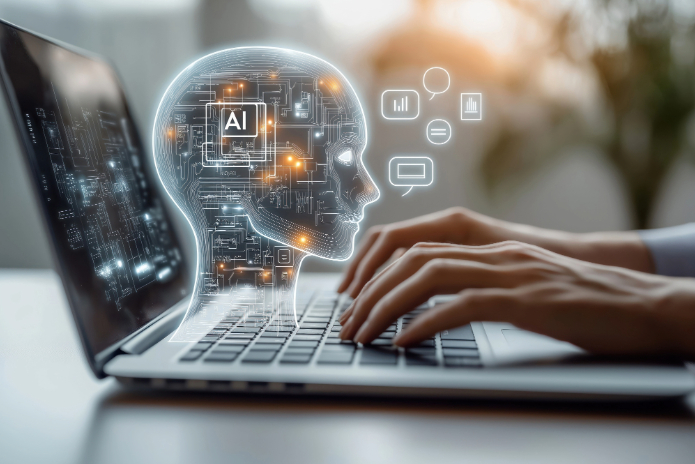Em 2025, o setor de e-commerce está passando por uma revolução impulsionada pela inteligência artificial, que redefine a forma como consumidores e empresas interagem online. Conhecer as aplicações dessa tecnologia é fundamental para quem deseja se destacar neste mercado em rápida evolução.
Introdução à transformação do e-commerce em 2025
O comércio eletrônico vive uma era de mudanças rápidas e profundas em 2025, com a inteligência artificial (IA) se estabelecendo como uma das principais forças motrizes por trás dessa transformação. As lojas virtuais estão adotando cada vez mais soluções inteligentes para oferecer experiências personalizadas, otimizar operações e melhorar a satisfação do cliente. Essas inovações não apenas aumentam a competitividade, mas também promovem uma verdadeira revolução digital no setor.
O papel da inteligência artificial no crescimento do setor
A inteligência artificial tem desempenhado um papel fundamental no crescimento do e-commerce em 2025, ajudando empresas de todos os tamanhos a se adaptarem às novas demandas do mercado digital. Segundo dados de 2025, mais de 75% das lojas online de sucesso utilizam pelo menos uma solução baseada em IA para melhorar suas operações.
Essa tecnologia ajuda na análise de dados em tempo real, previsão de tendências, automatização de processos e personalização da experiência do usuário. Como resultado, as empresas conseguem aumentar suas taxas de conversão, reduzir custos operacionais e conquistar maior fidelidade dos clientes.
Principais aplicações da IA no e-commerce em 2025
1. Personalização avançada
Uma das aplicações mais visíveis da IA no comércio eletrônico em 2025 é a personalização de conteúdo. Os algoritmos analisam o comportamento de navegação, compras anteriores e preferências do usuário para oferecer recomendações altamente relevantes. Por exemplo, plataformas de e-commerce como a MercadoLivre e Amazon utilizam IA para sugerir produtos que correspondem exatamente às necessidades do cliente, aumentando as chances de compra.
2. Atendimento ao cliente automatizado
Chatbots inteligentes com capacidade de processamento de linguagem natural oferecem suporte 24/7, resolvendo dúvidas e auxiliando na finalização de compras. Essas ferramentas reduzem significativamente o tempo de resposta e melhoram a experiência do consumidor, além de liberar recursos humanos para tarefas mais complexas.
3. Otimização de preços e estoque
A inteligência artificial permite ajustar preços em tempo real com base na demanda, concorrência e comportamento do mercado. Além disso, ela otimiza a gestão de estoque, prevendo a demanda futura para evitar excessos ou faltas de produtos. Empresas como a Alibaba já utilizam essas técnicas para maximizar lucros e eficiência em suas operações.
4. Logística inteligente
O uso de IA na cadeia de suprimentos garante entregas mais rápidas e precisas. Desde rotas otimizadas até previsão de demanda de transporte, esses sistemas tornam o processo logístico mais eficiente, reduzindo custos e melhorando a satisfação do cliente.
5. Reconhecimento visual e realidade aumentada
A combinação de reconhecimento visual com IA permite que consumidores experimentem produtos virtualmente, como testar um móvel em sua sala ou experimentar roupas usando realidade aumentada. Essas tecnologias aumentam o engajamento e reduzem as taxas de devolução, ainda presentes em muitos setores de e-commerce.
Tendências de tecnologia para o e-commerce no próximo ano
- Integração de IA com dispositivos IoT: Smart mirrors, assistentes de voz e outros dispositivos inteligentes continuarão integrando IA para criar experiências de compra mais imersivas.
- Automação completa do atendimento: Assistentes virtuais mais sofisticados, capazes de lidar com tarefas complexas e manter interações mais humanas.
- Buy Now, Pay Later (Compra Agora, Pague Depois): Sistemas de pagamento inteligente que se conectam à IA para oferecer opções de financiamento personalizadas.
- Previsão de tendências com Big Data: Uso de análise preditiva para antecipar mudanças de mercado e ajustar estratégias de vendas rapidamente.
Desafios e oportunidades para lojistas em 2025
Embora as oportunidades sejam muitas, o uso de inteligência artificial também apresenta desafios. Entre eles, a necessidade de investimentos em tecnologia, a gestão de dados pessoais dos consumidores e a manutenção da ética no uso da IA. Contudo, as oportunidades de crescimento, inovação e maior engajamento compensam esses obstáculos para quem estiver preparado.
Lojistas que adotarem estratégias inteligentes em 2025 poderão se destacar, oferecer experiências únicas aos clientes e ampliar sua participação no mercado digital. Além disso, a integração de IA às operações permitirá uma tomada de decisão mais rápida e embasada, impulsionando o negócio de forma sustentável.
Como se destacar com IA no comércio eletrônico
Para se destacar no competitivo setor de e-commerce em 2025, é fundamental investir em inteligência artificial de forma estratégica. Algumas dicas incluem:
- Entender profundamente seu público: Utilize análise preditiva e machine learning para compreender seus consumidores e oferecer experiências personalizadas.
- Investir em tecnologia de ponta: Integre chatbots, recomendações personalizadas e automação logística para otimizar suas operações.
- Priorizar a experiência do usuário: Utilize realidade aumentada e reconhecimento visual para criar interações mais imersivas e intuitivas.
- Ajustar estratégias de preços em tempo real: Use IA para monitorar a concorrência e adaptar sua estratégia de preços rapidamente.
- Garantir a privacidade e ética: Respeite os dados dos clientes e utilize a IA de maneira ética, fortalecendo a confiança na sua marca.
Seguindo esses passos, seu e-commerce estará bem preparado para aproveitar ao máximo as oportunidades oferecidas pela inteligência artificial em 2025, garantindo uma vantagem competitiva duradoura.
Em resumo, a inteligência artificial está moldando o futuro do comércio eletrônico, trazendo inovação e eficiência em todos os aspectos do setor. Quem integrar essas soluções de forma estratégica estará à frente da curva e poderá aproveitar o máximo das tendências tecnológicas em 2025 e além.


